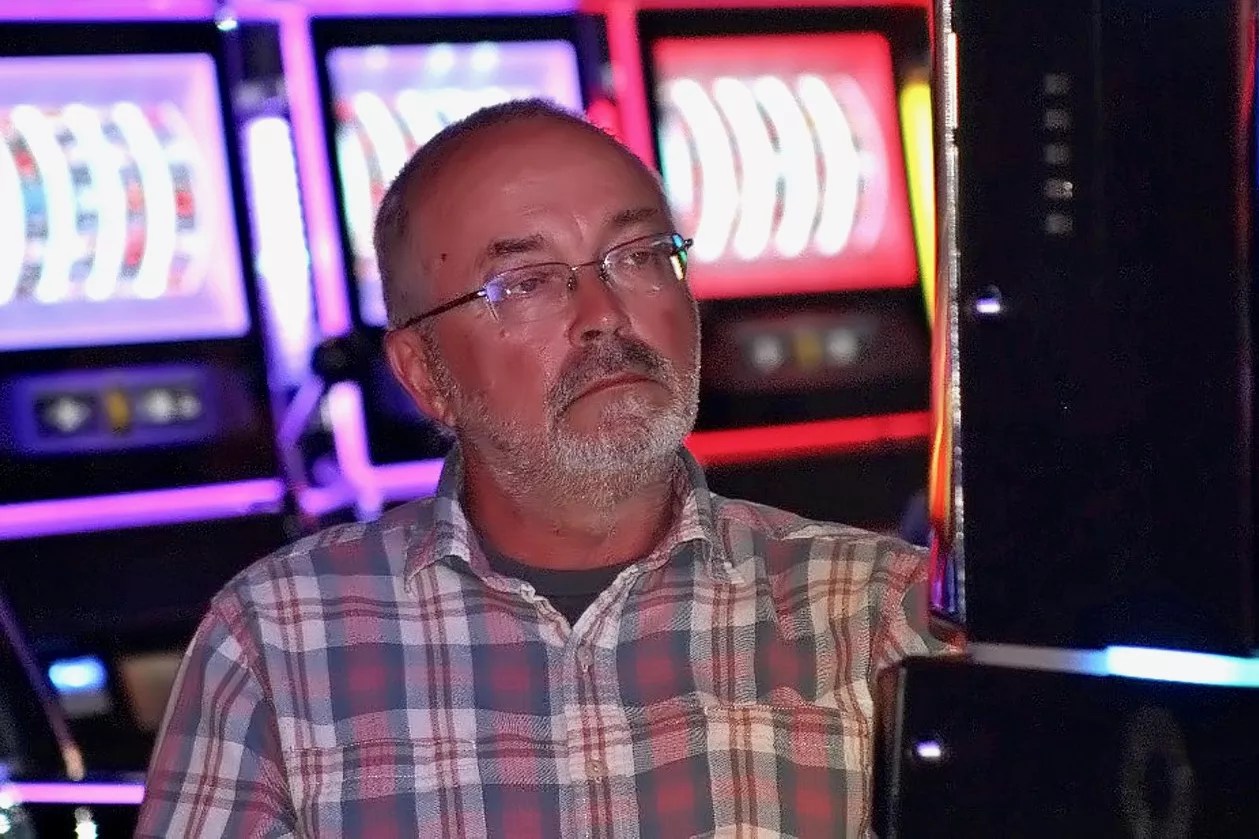
Elias Weiss

Audio By Carbonatix
The National Indian Gaming Association came to Fort McDowell recently and celebrated a historic year in the state for tribal gaming – but it also aired concerns that the honeymoon could soon be over.
The association, a coalition of more than 250 federally recognized tribal nations, convened for its annual midyear conference at the We-Ko-Pa Casino Resort on November 14-16. The event drew some of the biggest names in gaming, including hedge fund investor Soo Kim, who owns the Bally Sports budding casino brand; Thomas Reeg, CEO of Las Vegas behemoth Caesars Entertainment; and Brett Calapp, CEO of Desert Diamond Sports.
The casino leaders enjoyed a sumptuous lunch spread, smiling and cracking jokes inside the resort’s impressive Wassaja Conference Center. Out-of-town leaders marveled at breathtaking views of the Red Mountains and Sonoran Desert as gamblers played cards and slots just outside.
But the topic of conversation quickly turned dire. Native American tribes fear they’re losing their grip on the red-hot sports betting market in Arizona, which is the biggest state in the West for sports betting.
It’s been a year since the debut of sports betting in Arizona, with 20 licenses spread throughout both commercial and tribal gaming enterprises ushering in a new era of competition in the state. One big question remains: How are the tribes holding up in Arizona?
They’re holding up well, for now, having carved out a portion of the $5.4 billion wagered in the state in its first year of legal betting, according to Maxwell Hartgraves, a spokesperson for the Arizona Department of Gaming.
But some tribes are wary of the end of a honeymoon phase as they stare down the reality of not being able to compete with commercial sportsbook behemoths in Arizona forever. Instead, they’ll try to use them to draw traffic into their casinos.

Arizona bettors have already wagered more than .4 billion, according to Arizona Department of Gaming spokesperson Maxwell Hartgraves.
Elias Weiss
So Far, So Good
Tribes contributed a record $123.6 million to government agencies this year, according to a recent report from the Arizona Department of Gaming. Each tribe contributes between 1 percent and 8 percent of its revenue to local, county, and state governments, with nearly 90 percent of that contribution going to the gaming department.
“It is safe to say 2022 was historic for Arizona tribal gaming,” said Ted Vogt, director of the Arizona Department of Gaming. “I am ecstatic to see the highest levels of tribal contributions to the state following the Amended Tribal-State Gaming Compact signed by Governor [Doug] Ducey last year.”
Although the compact places limitations on casinos, it gives tribes exclusive ownership rights over casinos in Arizona. As a result, the only entities that can own and run casinos in the state are tribes. But in the state’s budding sports betting market, that’s not the case.
While tribal contributions this year were the most ever, some tribal leaders said the government is the only one celebrating. Tribal sports betting platforms saw $208 million in revenue and gave $30 million back to the state in privilege fees alone, according to the state gaming department. It’s not a sustainable model as commercial competition creeps further into the state’s sports betting market.
“The big fear now is loss of exclusivity,” said Jason Giles, executive director of the National Indian Gaming Association. “Gaming is the only thing that has ever worked for us. Since 1492 when Columbus landed, it’s the only thing that has worked. That’s why we fight so hard.”
The compact that Ducey signed into law in April 2021 allowed for 20 sports betting licenses – 10 to tribes and 10 to professional sports teams. But there are 22 federally recognized tribes in Arizona, many of which applied for licenses only to be turned down by the state, sparking lawsuits. There’s less competition for the 10 licenses for the sports teams, which mostly are partnering with third-party sportsbooks and marquee gaming companies.
Casinos in Arizona are confined to reservations, but off-reservation sports betting thrives in bars, arenas, and on millions of cell phones across the state.
“It’s about losing that exclusivity and competing in a commercial gaming market. Our feet are nailed into the ground here on the reservation,” Giles said.

Jason Giles, executive director of the National Indian Gaming Association, wants to use sportsbooks to draw traffic to his casinos.
Elias Weiss
Tribes ‘Left Behind’
In 2002, Arizona overwhelmingly voted down a ballot initiative that would allow slot machine gambling and table games inside horse racing facilities. The same year, voters approved Proposition 202, called the Indian Gaming and Self-Reliance Act, which established the framework for gaming in Arizona.
Since then, tribes have been able to cash out on transfer agreements – those who have an abundance of machine rights can lease their spinning wheels and slot machines to urban tribes who need them on the casino floor. The Navajo Nation, for example, is pulling in $10 million annually off the deal, according to the tribe’s attorney, Stephen Hart.
But tribes need sports betting to work in order to stay afloat, some industry leaders argued, and they are concerned about increased competition.
“We underestimated the number of commercial operators who came here and sought out tribal partnerships,” said Charlene Jackson, an attorney representing the Hualapai Tribe near Kingman and a Maricopa County Superior Court judge. “A competitive wave is coming in. It’s a little bit scary for us.”
Tribes can’t compete with the capital held by commercial operators such as Caesars, BetMGM, and FanDuel, Jackson said. While the Las Vegas bigwigs doled out billions of dollars on splashy bait to hook new Arizona sports bettors, tribes were scrambling to compete for licenses and find partners.
“Quite frankly, we were left behind,” Jackson said. “The numbers reflect that.”

A gambler enjoying slots at the We-Ko-Pa Casino Resort.
Elias Weiss
‘Only the First Inning’
Jackson argued that 10 licenses for 22 tribes was appropriate. If the state granted every tribe a sports betting license on top of what was negotiated with professional sports teams, there would be more than 30 licenses. “We did not know that the market would hold that. If a tribe went to market and shut its doors, that would be worse,” she said.
Still, Jackson said she doesn’t expect tribes will make much money on sportsbooks. Hart disagrees, but with a caveat.
“How have tribes done since the advent of sports betting? Very, very well. That’s the reality,” he said. “But we’re moving from a monopolistic environment into a competitive environment. You can lose money. A lot of these entities will go upside down.”
The solution, according to Giles, is to maintain casino exclusivity and use sportsbooks as a bargaining chip to draw casino traffic on reservations – not as a cash cow.
“The amount of money generated in sports betting is not a lot. It’s not worth it,” he said.
Arizona’s new sports betting market has its issues but still offers opportunities, Giles added.
“In the rush to get to sports betting, we need to realize that sports betting is an amenity to draw people into our casino hotels. This is only the first inning,” he said.